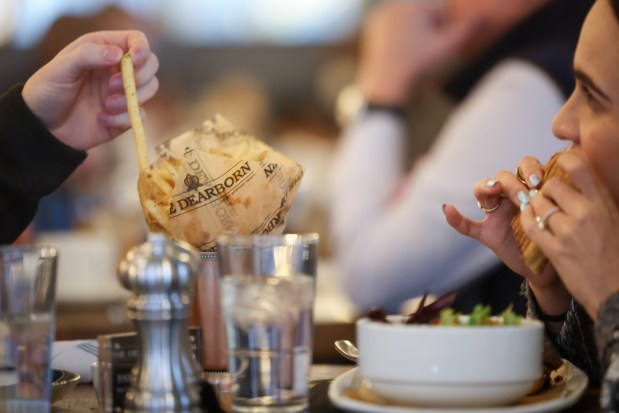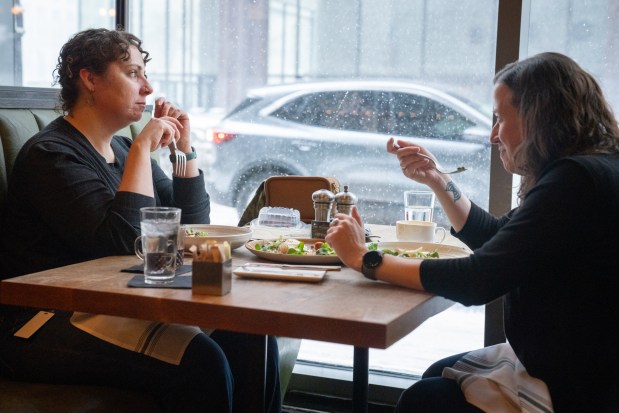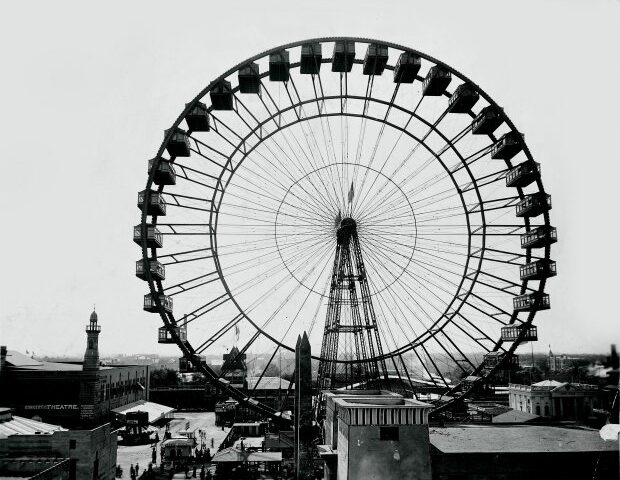Duce Raymond, managing partner of a Chicago-area catering company, is always trying to build more corporate business.
In the last four years, weddings have made up about 60% of SBR Events Group’s business, followed by corporate events at roughly 30% and social events at 10%, Raymond said. Social events include birthday parties and baby showers.
“You can get more recurring business from corporate,” Raymond said. “They could do a monthly sales meeting, a holiday event, a summer picnic (and) smaller events throughout the year.”
If a company finds that SBR Events Group does a good job, it may very well turn to the caterer again and again.
The latest return-to-work mandates may help give a boost to businesses in Chicago, especially in the Loop.
A number of high-profile employers in recent months have taken steps to significantly curb pandemic-era remote work. According to a report from Flex Index, a workplace flexibility information company, the percent of U.S. firms requiring in-person work all the time remained roughly flat during the final three quarters of 2024. But the report also said the average U.S. firm required 2.78 days per week in the office in the fourth quarter of 2024, up from 2.63 days in the third quarter and 2.49 in the second.
Amazon announced in September that it would ring in the new year by expecting employees in the office five days per week. AT&T made a similar directive, and Dell and the executive branch of the federal government have decided to bring people back to the office on a full-time basis. JP Morgan Chase also is requiring workers on-site five days a week, and Salesforce has called some workers back to the office four days per week.
Clodagh Lawless, proprietor of The Dearborn in the Loop, said the restaurant depended on Loop office workers to hit its lunch revenue projections.
“Pre-COVID, our demographic for lunch was predominantly the in-person office worker — the worker in the Loop,” said Lawless, who opened the urban-American tavern with her family in 2016.
The restaurant would also fill up from 4 to 6 p.m. People would order appetizers and drinks and relax with colleagues after work.
The pandemic took a big toll on The Dearborn and many other restaurants, Lawless said. The Dearborn is the livelihood of Lawless, her spouse, her sister, her sister’s spouse and their children, she added. So the pandemic was a really dark time for them.
“When it reopened, it wasn’t much better because the whole professional office work landscape had shifted,” Lawless said.
At the start of 2025, The Dearborn’s lunch business was not as good as it was before the pandemic, but there have been more office workers coming in recently, Lawless said. Happy hour business has yet to come back in a big way, but it’s definitely improved, which likely is attributable to an uptick in-person work requirements, Lawless said.
“What’s best for the restaurant business in the Loop in Chicago is for office workers to be in their office,” she said, while expressing empathy for those who find it easier to work from home.
Jonathan Capitanini, president of Italian Village Restaurants, a family-owned restaurant concept that’s been in the Loop since 1927, said that since last year, catering orders have picked up. He said many businesses are using catered food to tempt young people, as well as their older colleagues, to come to the office.
Capitanini’s relatives have told him lunch has been on the decline since the mid-20th century. Only one of the four eatery concepts is open for lunch.
But when the city “got to the other side” of the pandemic, Capitanini helped retool to make the business more appealing to people in their 20s and 30s, including downtown workers, those without kids and those who enjoy grabbing drinks after work.
The Village opened a basement eatery called Sotto in December with refined Italian comfort food and a relaxed climate and decor that the owners hope will attract a younger crowd. The accompanying tavern, Bar Sotto, aims to be “an extension of your living room.”

The Loop, Chicago’s central business district, has seen its challenges in the past two decades, well before the pandemic, Capitanini said.
“We as a family never felt like you could ever, ever bet against the Loop,” Capitanini said. “Sure it’s going to go up and down and it has several times over the years and decades that we’ve been here. But we know that if it is going down, it will one day return and turn around. And I think as a family, we’ve really decided that that is now.”
Sarah Finlayson-Banasiak, chief creative officer for the Chicago events company the Revel Group, said in an email that she’s seen a growing demand for daily meals as more companies have brought employees back to the office on a hybrid basis or full time.
The Revel Group has noticed companies that don’t have their employees in the office five days per week still value in-person gatherings.
“For companies that remain remote or hybrid, we’re seeing a shift toward intentional, high-impact gatherings,” Finlayson-Banasiak wrote.




